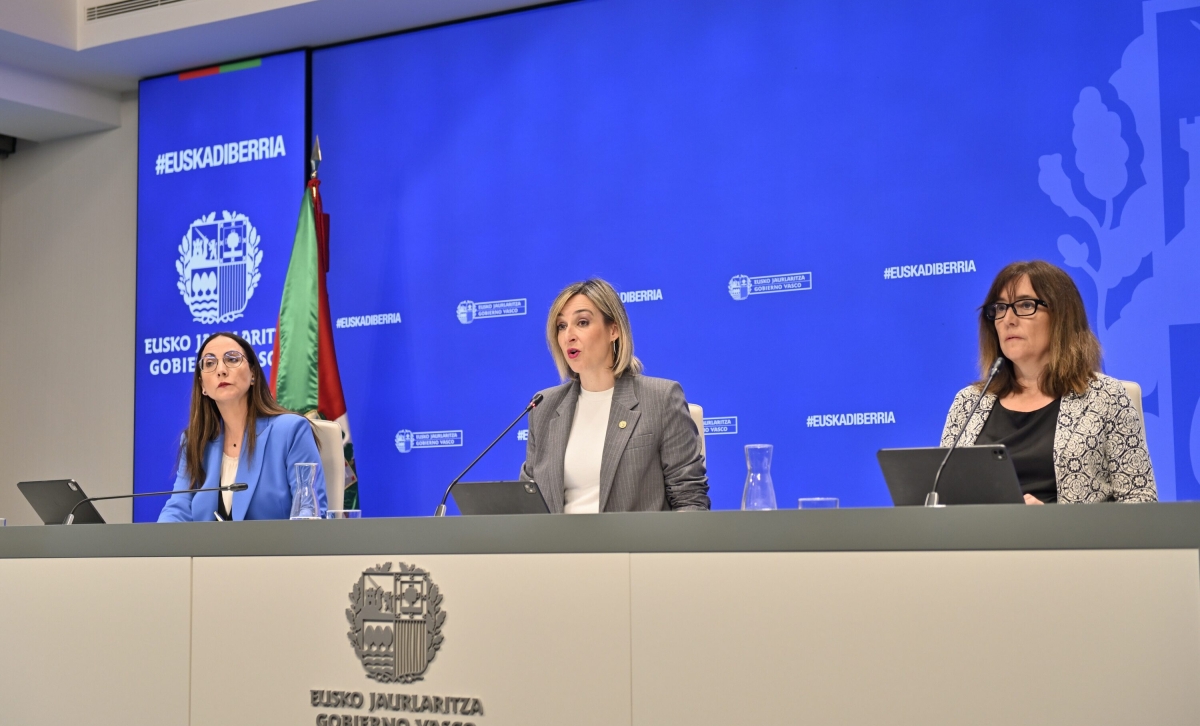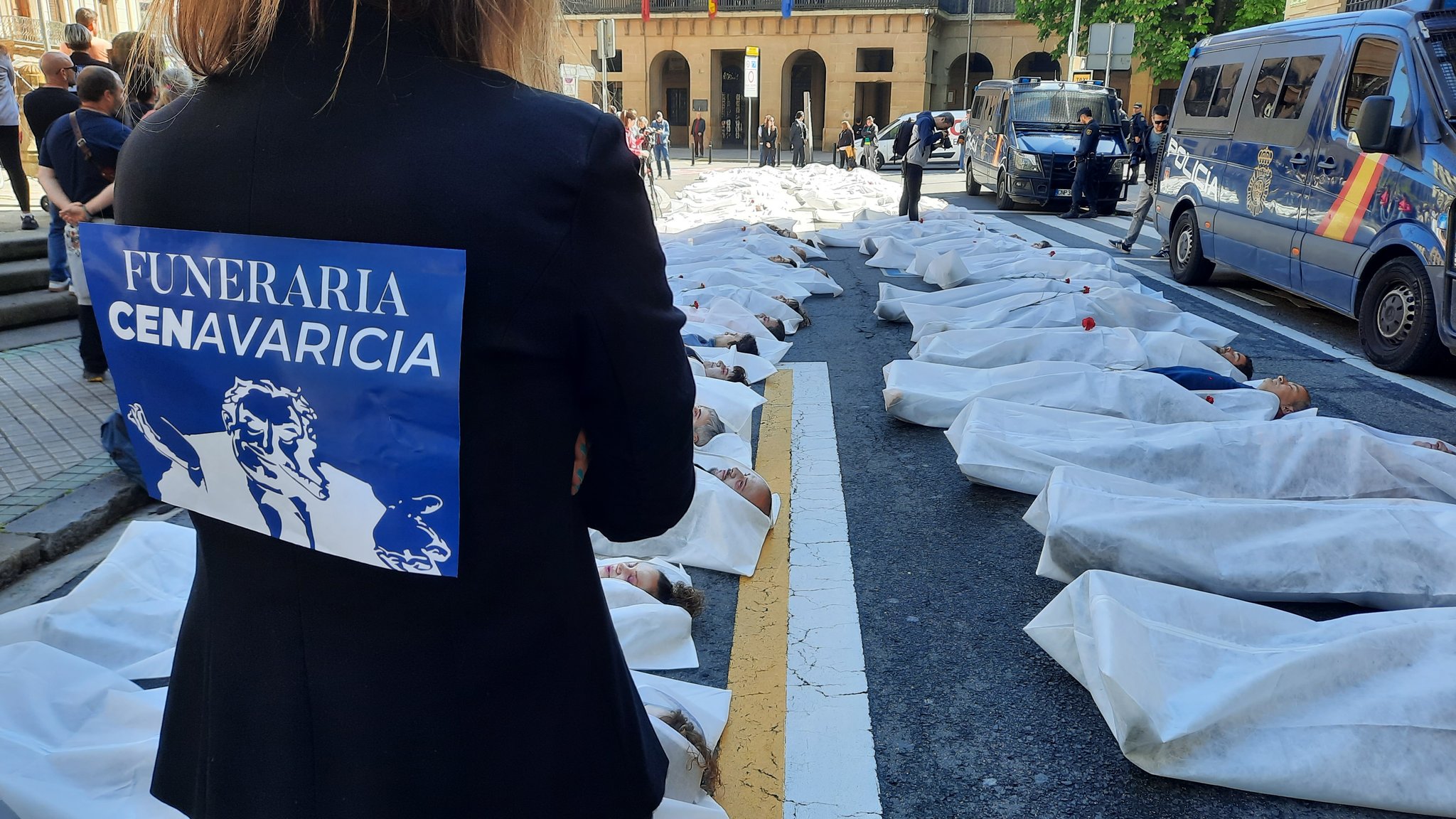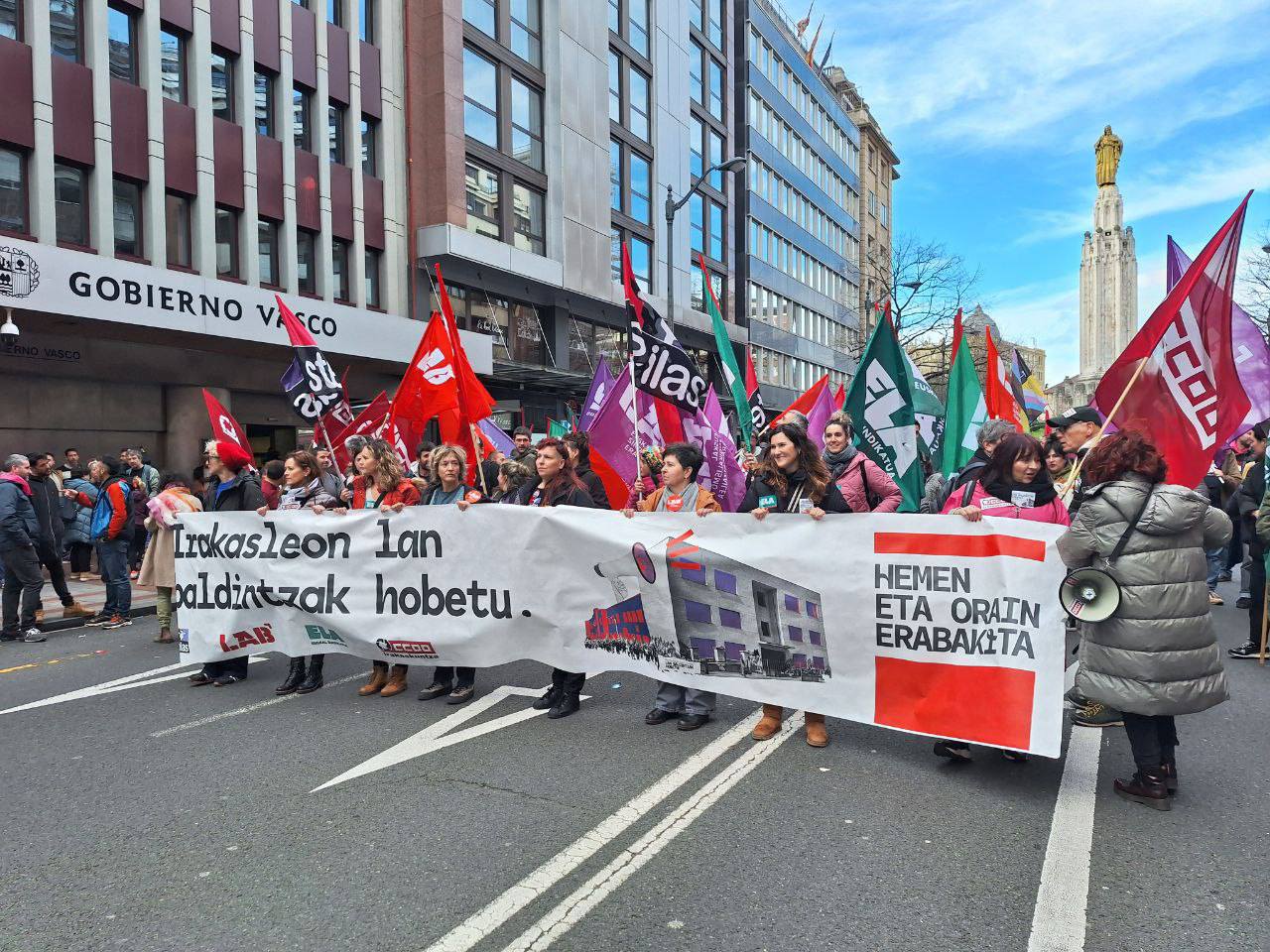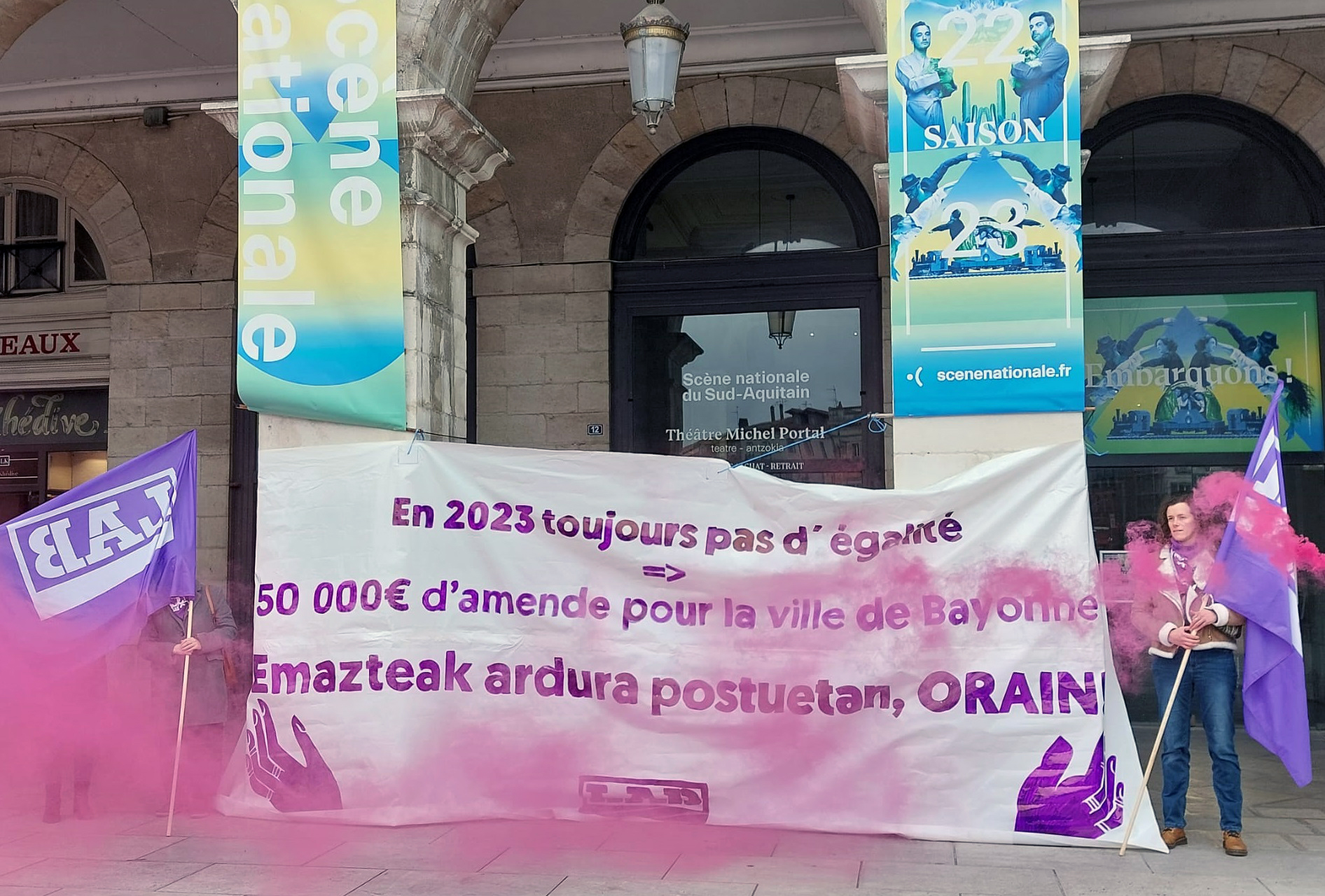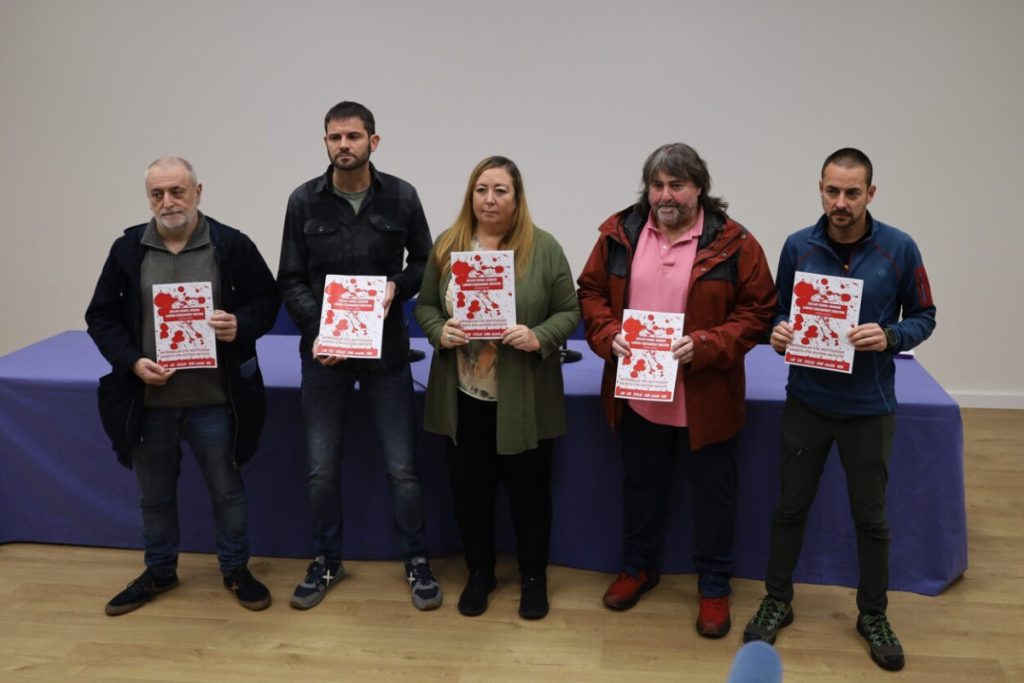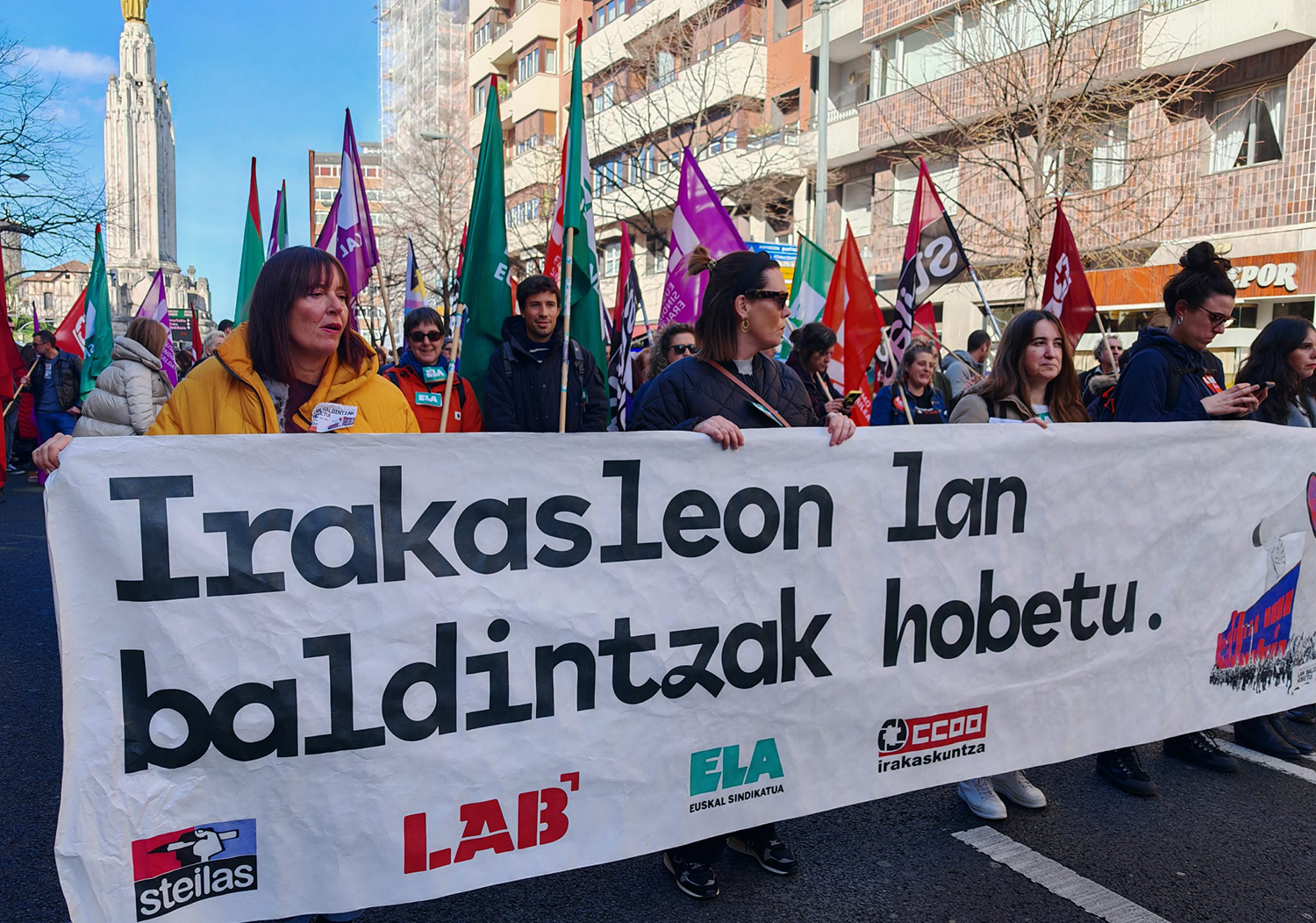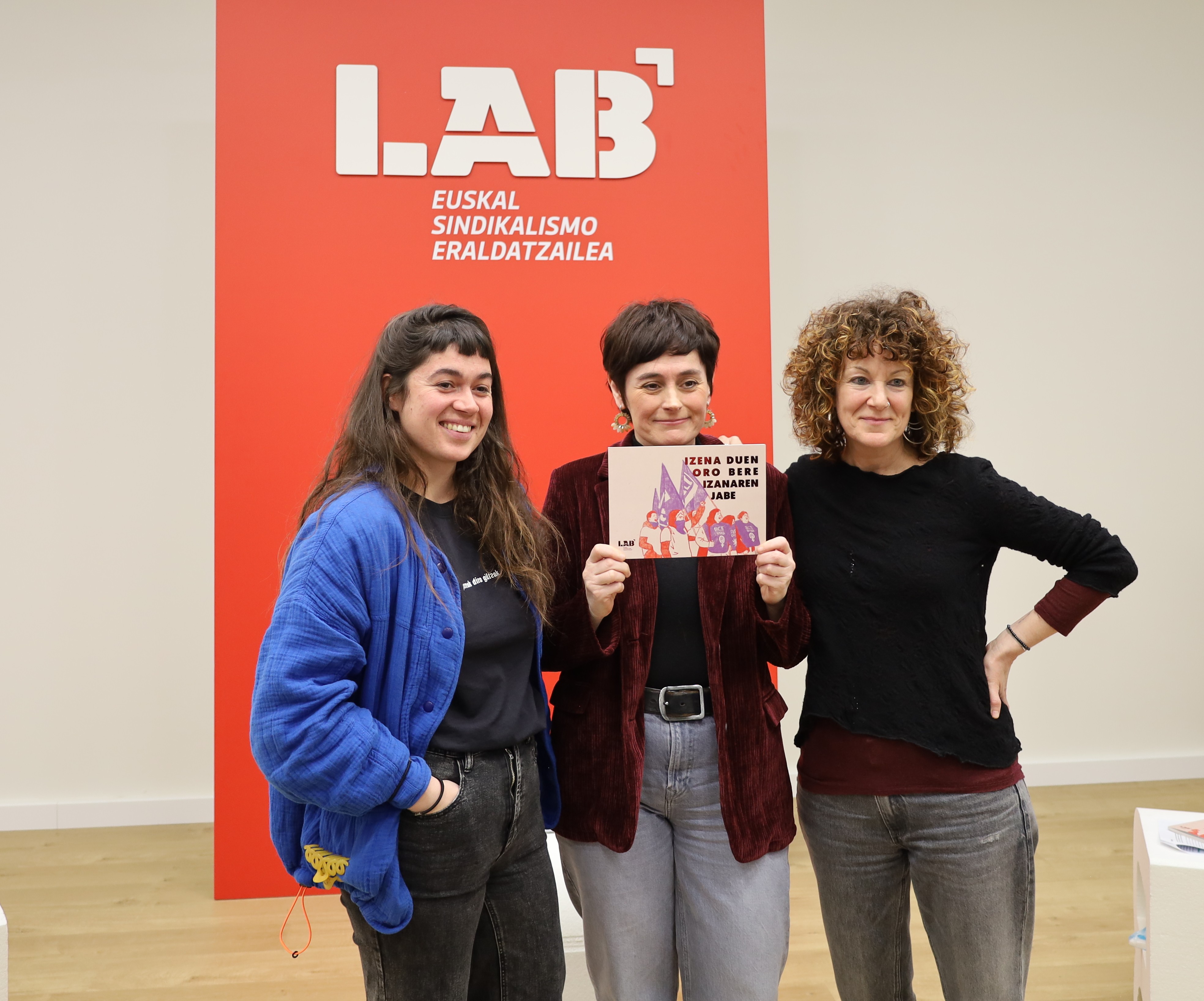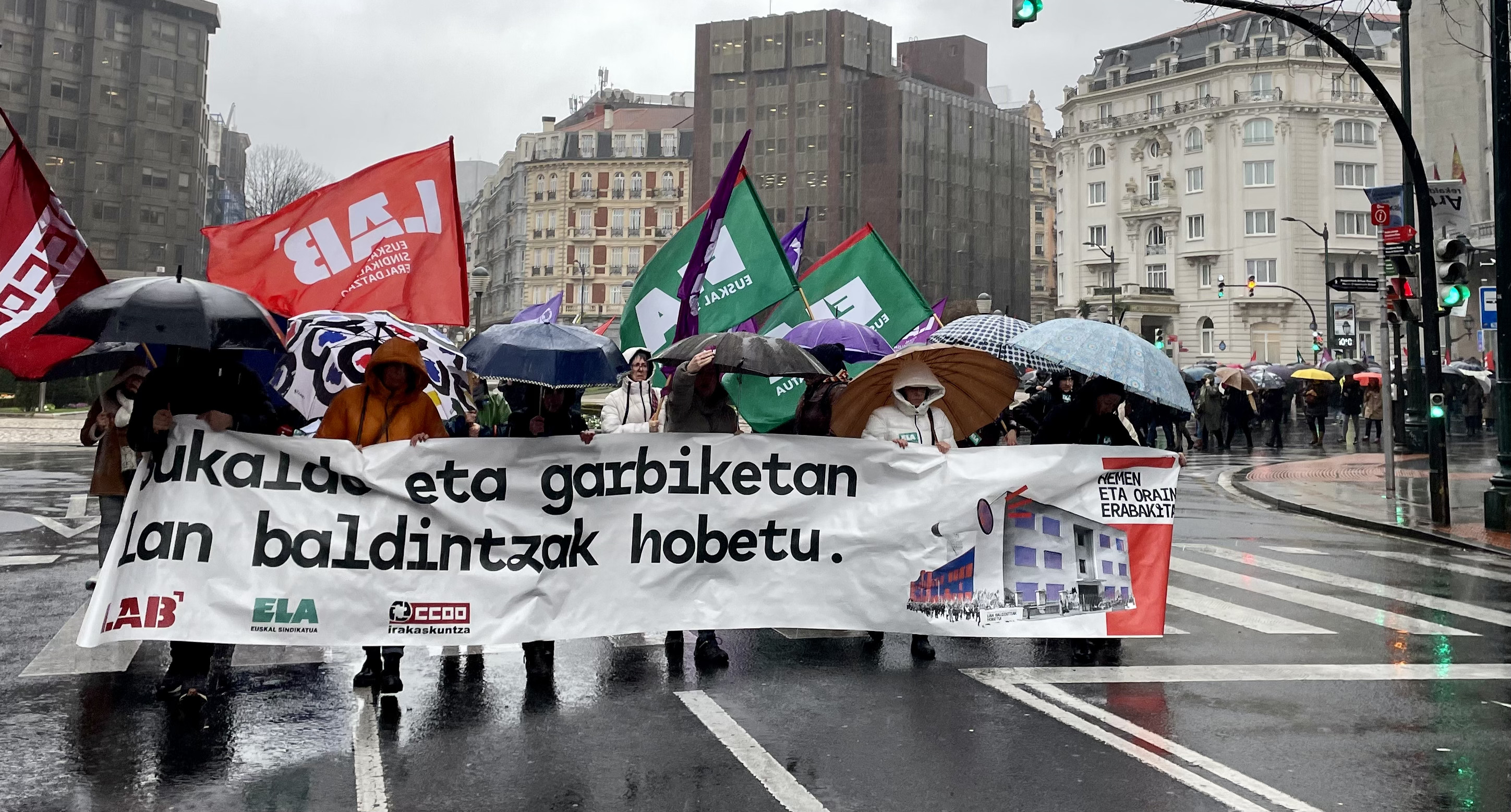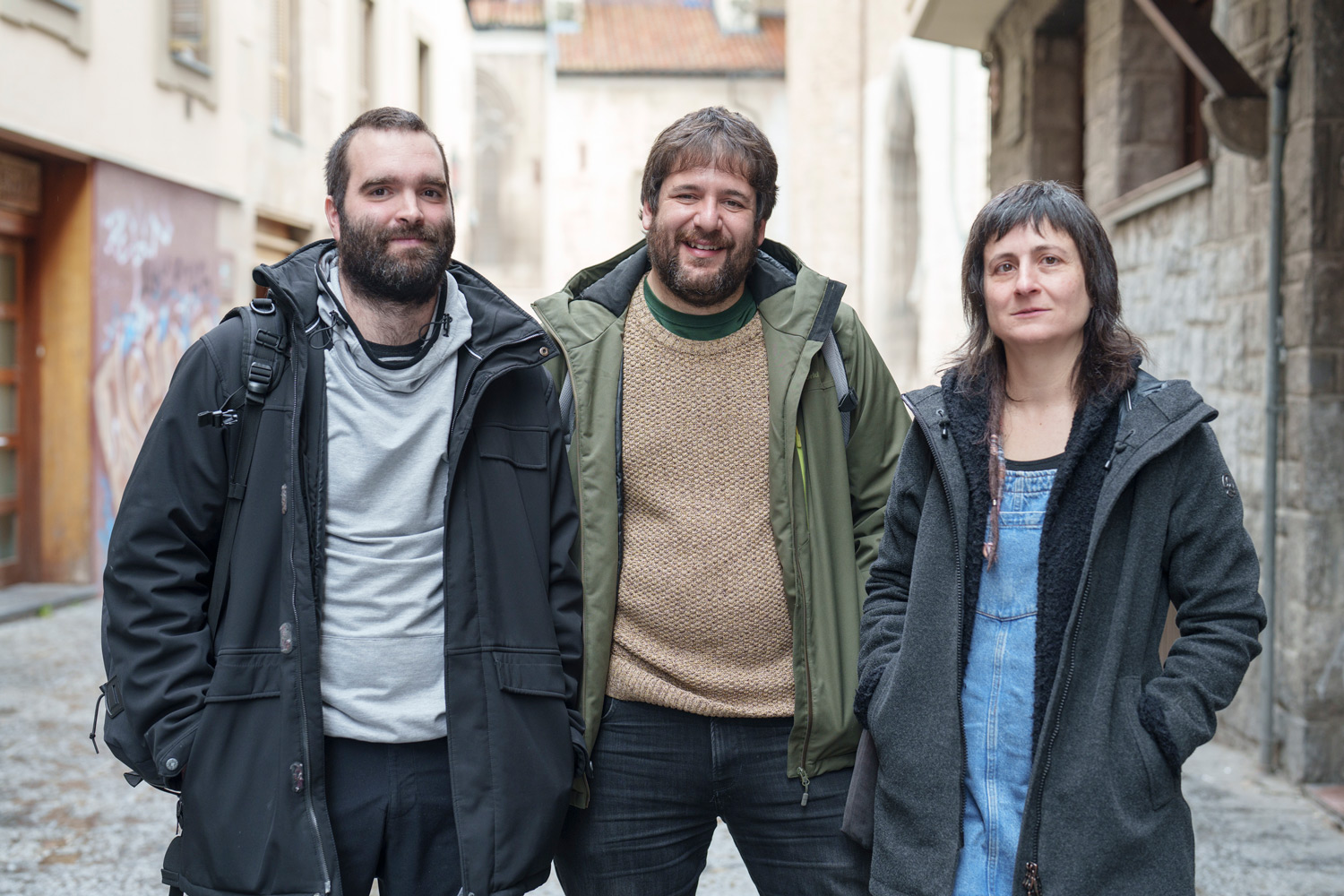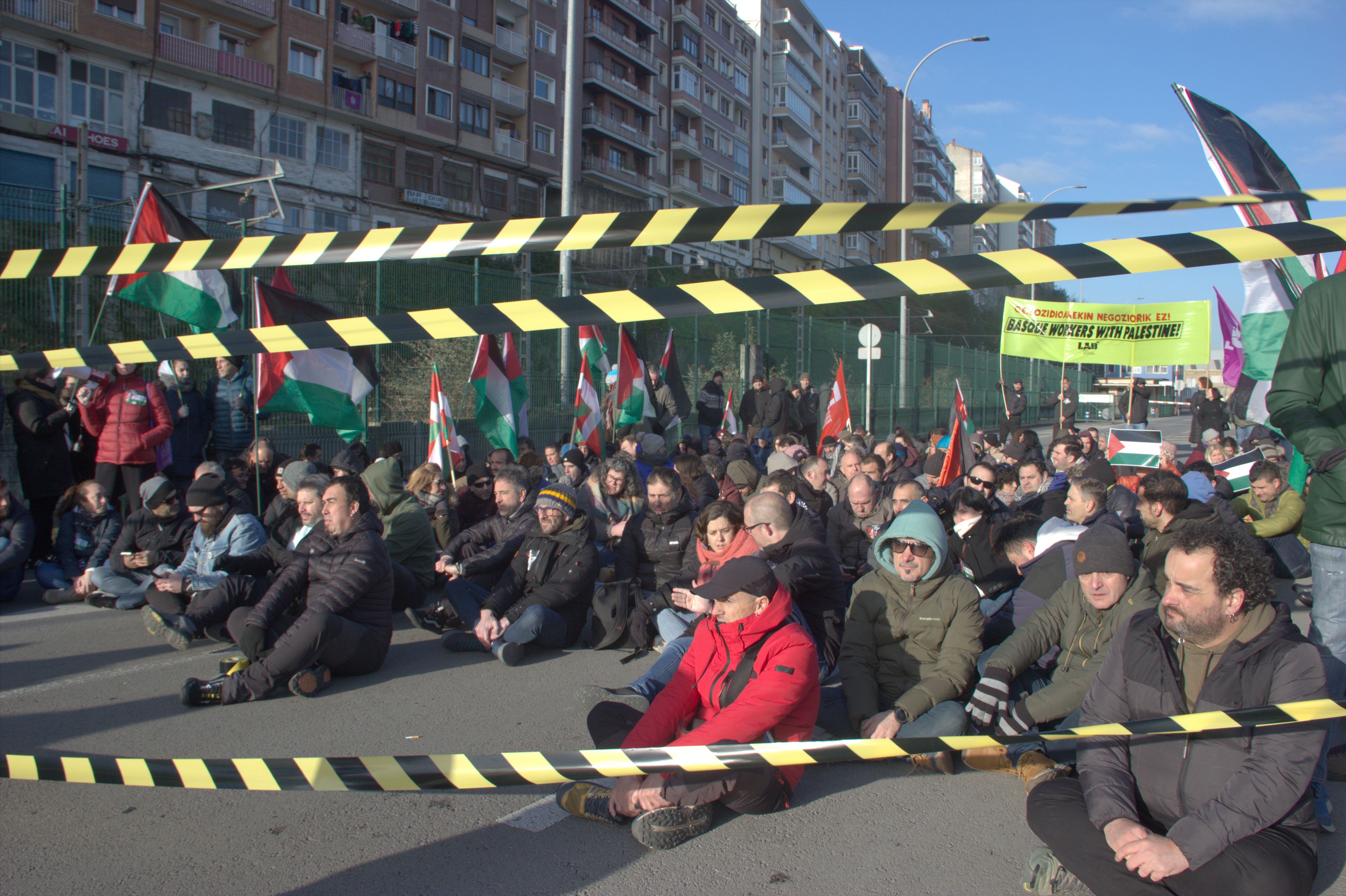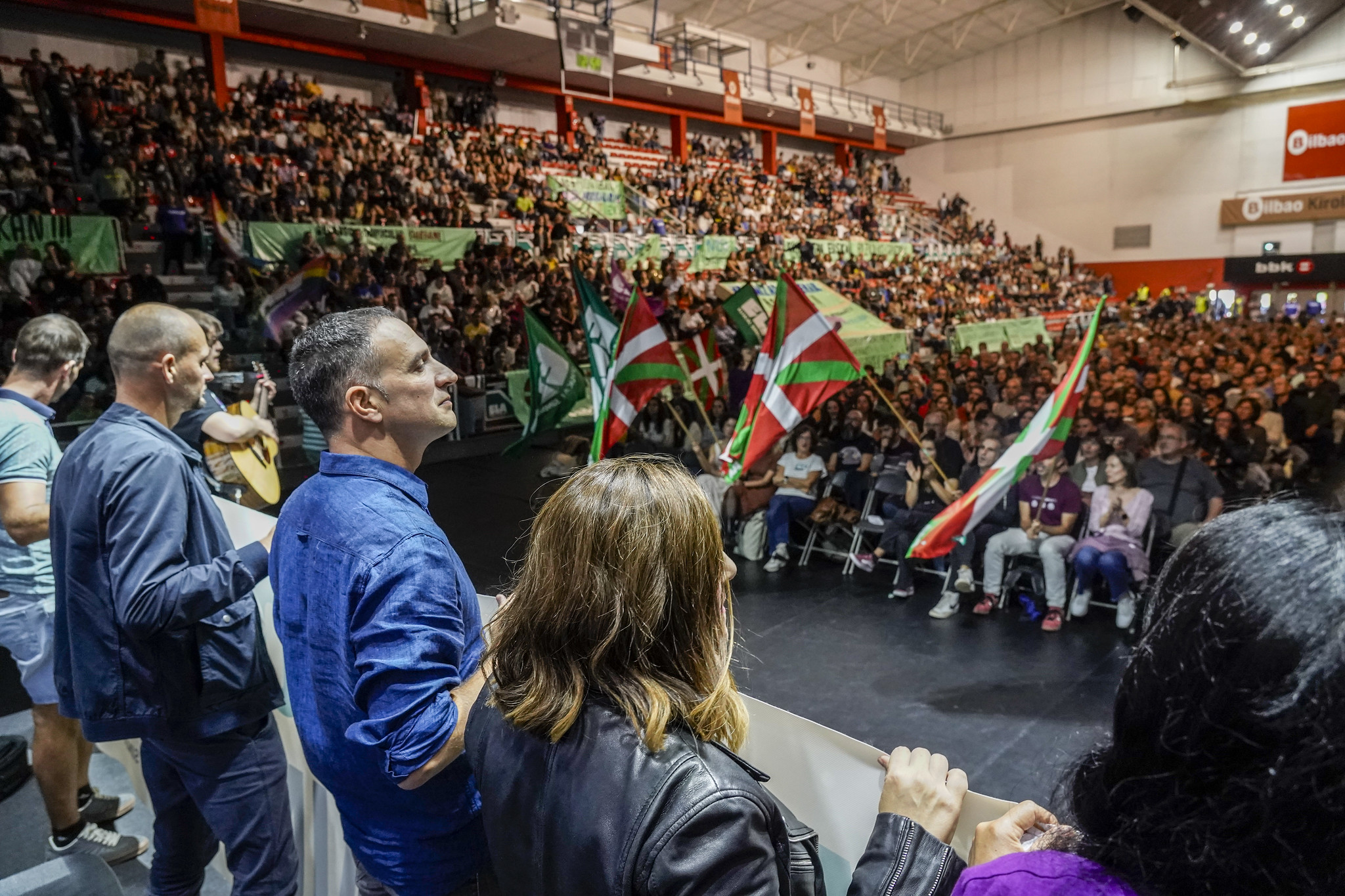Abertzale Workers Union, for 20 years
- The LAB trade union was born in Ipar Euskal Herria 20 years ago and since then, in addition to working in companies, it has been a driver of many social movements. Two decades of travel have not been without obstacles.

The need to work in the social sphere has been one of the concerns of the leftist and Basque militants of Ipar Euskal Herria. In the 1970s, the Jazar, Susta and EHLE group was the Basque Country Workers Association in the 1990s, and the Atxik collective in 1997. It was dissolved in 1999, but soon they returned to the idea, mainly among some SEASKA and Socoa workers, aware of the need for an instrument to help them defend their rights. They started a discussion process with three options: Link a French union, create a union from scratch and link it to another union in the Basque Country. Where the assemblies were held, they decided that they wanted an Abertzale syndicate and that they would join LAB. “For us it was what had to be. The Abertzale Left Union was LAB,” said Dominika Dagerre. They contacted LAB to achieve recognition and ratified the decision in the general assembly. The project was presented by Dager at the 5th National Congress of LAB. The first public appearance took place in Baiona on 1 May 2000. Amaia Fontang recalls “the historical moment,” “we saw that it would be difficult to occupy that place.” After 20 years of boycotts, attacks and litigation, they continue to call for room.
Fontang was the first worker of Ipar Euskal Herria of the union LAB. Remember the time he entered the premises that opened on Marengo Street in Baiona and sat in front of the computer. “It was obvious that we were not prepared. We were out of social struggles, but the trade union struggle was something else.” The working code was opened and legally prepared, with the help of: On the one hand, the trade union of Corsica STC, and on the other, that of some French trade unions, even if it has never been official.
The first job was to structure the union, to turn to the workers to join, to begin analysis of the socioeconomic situation of the sector, to create commissions in the companies... At first, to enter LAB, the disaffiliation of other unions was not required. There was a trade union experience and they wanted to take advantage of it. “Here, the majority are small and very small businesses. Therefore, a special type of unionism is necessary in order to be able to work with them and defend their rights,” Dager explained. “From the beginning we analyzed that precariousness was increasing and decided to give our strength in the organization of the precarious. That is what we advocated: that workers have to organize themselves to defend their rights.” A series of actions were organised around temporary companies to denounce precariousness, as well as the workers of large businesses. They collaborated with the AC and Attac movements.
Immediately after its creation, there was the first stumbling block, a law that required the creation of LAB commissions in companies zituztelarik.Ordezkaritza, and that did not accept LAB as a trade union. In Bokale, in the company ADA, a committee was set up that demanded its superiors and the other trade unions. LAB lost. They had more cases, but they were admitted to several companies. “Meanwhile, they changed the law; for us it was very important,” says Fontang.
At first they succeeded in the Abertzale movement, and soon they had a hundred members, but according to Dager, the debates within the Abertzale left influenced. “For some LAB wasn’t everyone’s union, we were one-sided. However, from the outset, all trends were under way. It has hampered our expansion, and for a long time.” He underlined that the plurality of his colleagues was complete and that therefore no positions were taken on the political situation. “Our intention was to build the union, period. We gave that priority.” In his view, this has been the result, among other things, of the fact that those who were not trade unions or those who were in French trade unions did not enter LAB; “others saw it difficult for LAB to achieve efficiency in the trade union world and in companies.”
Terexa Mitxelena is a member of the CGT and the Abertzale movement. He is currently retired, but has been a trade union delegate for many years. Twenty years ago, he saw “nothing wrong” the birth of LAB, but he decided to be in the CGT. “I was at the CGT in defense of the workers, I did my job and I didn’t want to change it by saying. I think CGT is the best tool to do this. I do not ask my union to comply with all my demands, but to work in defence of the workers. That’s where we are,” he explained. He doesn't find it "bothersome" to be in the CGT being Abertzale. "CGT members know I'm Abertzale and it hasn't created any problems. Some nationalists don’t understand why I’m in the CGT.”
Boycott
The boycott suffered by other trade unions has marked the 20-year road for LAB. In 2000, the main French trade unions joined the anti-terrorist pact that took place in Spain and decided to block LAB completely because it did not reject ETA’s armed activity. “It was just a pretext; they felt we could be competitive,” Dager said. “The other argument was that we were not unions, that we were tied to a party. However, we worked in a totally autonomous way, we were politically independent.” He acknowledged that the boycott of the other trade unions was "harsh and unexpected", to the extent that in the first demonstrations it was "physically marginalized". ETA abandoned armed activity in 2011, returned weapons in 2017 and dissolved in 2018, but in 2020 they kept the same boycott, by excluding the Abertzale syndicate from the inter-union. “Very soon, we decided to do our own thing,” Dager explains, basically taking the place they didn’t leave. The mobilizations of 1 May were called 500 metres later than the other trade unions to enter the line of people and take their place ahead of political parties and other actors. They also tried to foster collaboration in companies, “the main problem was in the directions.”
The elections of the Baiona Labour Court were the first turning point in 2002. “We got a judge to our surprise,” explains Gerónimo Prieto, who was elected. “It allowed us to have a parallel speech with other unions; it gave us credibility.” In the 2008 elections they had four judges, “without us no one could get the majority”. The other unions forced them to dialogue with LAB.
In 2009, LAB promoted the Oldartu group, inspired by the movements of Guadeloupe and Martinique, and launched a campaign to free public transport in the Baiona-Angelu - Biarritz area. The attendees included parties such as AB, Batasuna and NPA, the unions LAB, CNT, ELB and Solidaires, as well as representatives of the feminist collective Segi, the feminist collective and Attac. This group promoted the strike assembly against the reform of the rallies of 2010 and in 2016 the anti-labour group, in which the CGT rail union also participated. LAB played a major role in these collaborations. “It was a way to avoid the boycott that was tolerated, to spread our influence,” Dager said. “It wasn’t an embarrassment, it was about broadening our ideas and getting more strength working with others.”
The 2016 small business elections were another turning point. The French trade union CGT filed an unconstitutionality appeal against LAB's candidacy for the presidency of the government. The complaint filed before the court said that LAB does not fulfil the status of professional union, because it prioritizes bilingualism giving importance to the Basque country, and is presented as an independent union. According to the CGT, these two ideas "disagree with republican values". LAB, for its part, added in its letter that it has "political purposes" and that it does not "exclusively" defend workers' rights. In Ipar Euskal Herria, the CGT trade union, for its part, created a great debate within the union. It was a massive mobilization against the labor law, in which members of LAB and the CGT mobilized together in the streets, but also against the arguments employed the nationalists and the Basques of the interior of the CGT convulsed. Finally, the structure of Ipar Euskal Herria was against the "decision made in Paris". After a lengthy judicial process, the Paris Court of Cassation gave the Abertzale syndicate a final ruling. “It allowed us to legally shield our trade union character,” Prieto said, “but we have not recovered the money lost in the procedure.” In recent years, LAB has organised the mobilisations of 1 May in cooperation with the CGT. He is still excluded from the organization of normal mobilizations.
Deciding there
In this regard, Prieto has pointed out that trade unionism is currently in "widespread crisis" and that "workers' awareness is declining". Dager referred to the rise of precariousness and neoliberalism: “It is becoming more and more difficult to bring union work; we have to think about new ways of fighting.” However, Prieto has stressed that Ipar Euskal Herria LAB continues to "open sections and achieve colleagues".
One of the main challenges of LAB is the creation of a collective bargaining space in Ipar Euskal Herria, within the Bertan Erabaki line that has been developed during these years. In the Development Council, they have worked very hard on this issue, also with other trade unions. But there are still many obstacles, and most unions do not want to take the step. “Measuring the forces of the unions at the level of Ipar Euskal Herria would highlight the strength of LAB,” says Prieto.
Mahai Orokorreko sindikatuek salatu dute Gobernuak utzikeriaz jokatu duela ordezkaritza sindikalarekin negoziatzerakoan, horren adibidea da Estatutu berriaren negoziazioan ezarri duen blokeoa. Gobernua Mahai Orokorrean gai horiek guztiak negoziatzera esertzeko ahalegin ugari eta... [+]
LABek, STEILASek, ELAk eta CCOOek greba egutegi bateratua aurkeztu dute Bilbon: martxoaren 25, 26 eta 27, eta apirilaren 1 eta 2. Egungo hitzarmenak aldarrikatutako edukietatik urrun kokatzen direla adierazi dute, "bai sukaldearen eta garbiketaren kolektiboan zein... [+]
Nahiz eta Nazio Batuen Erakundeak (NBE) 1977an nazioarteko egun bat bezala deklaratu zuen eta haren jatorriaren hipotesi ezberdinak diren, Martxoaren 8aren iturria berez emazte langileen mugimenduari lotua da.
2024ko laneko ezbeharren txostena aurkeztu dute LAB • ESK • STEILAS • EHNE-etxalde eta HIRU sindikatuek aurtengo otsailean. Emaitza larriak bildu dituzte: geroz eta behargin gehiago hiltzen dira haien lanpostuetan.
Grebaren bezperan Hezkuntza Sailak “edukirik gabeko” mahaia deitu zuela eta sindikatu deitzaileak “errespetatu gabe” akordioa “antzezteko” gutxiengoa duten sindikatuak “erabili” nahi izan zituela salatu ostean, beste bi greba... [+]
Lehen aldia da Hego Euskal Herriko euskal gehiengo sindikalak armagintza industriaren moldaketaz taldean eta modu publikoan hitz egiten duena. Aurreko hilabeteotan mugimendu antimilitaristak bilera bana egin du lau sindikatuokin, produkzio militarra “sozialki... [+]









